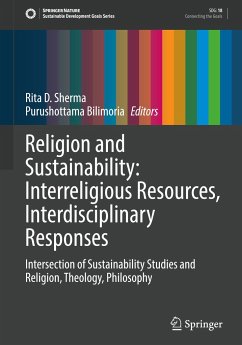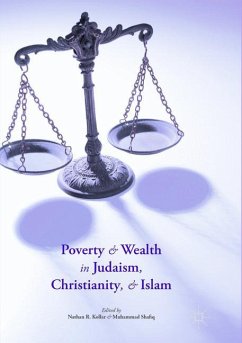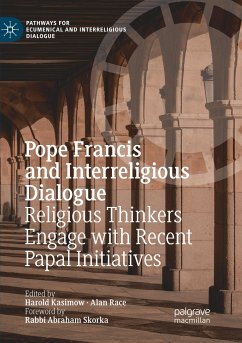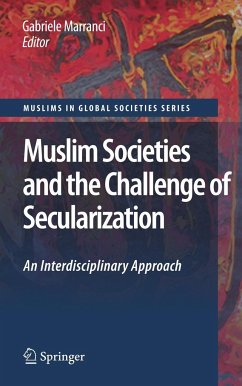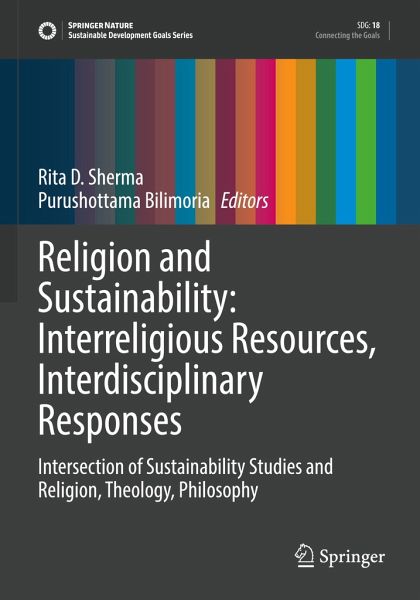
Religion and Sustainability: Interreligious Resources, Interdisciplinary Responses
Intersection of Sustainability Studies and Religion, Theology, Philosophy
Herausgegeben: Sherma, Rita D.; Bilimoria, Purushottama
Versandkostenfrei!
Versandfertig in 6-10 Tagen
113,99 €
inkl. MwSt.

PAYBACK Punkte
57 °P sammeln!
This volume brings sustainability studies into creative and constructive conversation with actions, practices, and worldviews from religion and theology supportive of the vision and work of the UN SDGs. It features more than 30 chapters from scholars across diverse disciplines, including economics, ethics, theology, sociology, ritual studies, and visual culture. This interdisciplinary content presents new insights for inhibiting ecospheric devastation, which is inextricably linked to unsustainable financial, societal, racial, geopolitical, and cultural relationships. The chapters show how huma...
This volume brings sustainability studies into creative and constructive conversation with actions, practices, and worldviews from religion and theology supportive of the vision and work of the UN SDGs. It features more than 30 chapters from scholars across diverse disciplines, including economics, ethics, theology, sociology, ritual studies, and visual culture. This interdisciplinary content presents new insights for inhibiting ecospheric devastation, which is inextricably linked to unsustainable financial, societal, racial, geopolitical, and cultural relationships. The chapters show how humanistic elements can enable the establishment of sustainable ways of thinking, feeling, and acting. This includes the aesthetic and emotive dimensions of life. The contributors cover such topics as empowering women and girls to systemically reverse climate change; nurturing interreligious peace; decolonizing landscapes; and promoting horticulture, ecovillages, equity, and animal ethics. Coverage integrates a variety of religious and theological perspectives. These include Buddhism, Judaism, Hinduism, Islam, Christianity, and other traditions.
To enable the restoration and flourishing of the ecosystems of the biosphere, human societies need to be reimagined and reordered in terms of economic, cultural, religious, racial, and social equitability. This volume illustrates transformative paradigms to help foster such change. It introduces new principles, practices, ethics, and insights to the discourse. This work will appeal to students, scholars, and professionals researching the ethical, moral, social, cultural, psychological, developmental, and other social scientific impacts of religion on the key markers of sustainability.
To enable the restoration and flourishing of the ecosystems of the biosphere, human societies need to be reimagined and reordered in terms of economic, cultural, religious, racial, and social equitability. This volume illustrates transformative paradigms to help foster such change. It introduces new principles, practices, ethics, and insights to the discourse. This work will appeal to students, scholars, and professionals researching the ethical, moral, social, cultural, psychological, developmental, and other social scientific impacts of religion on the key markers of sustainability.





